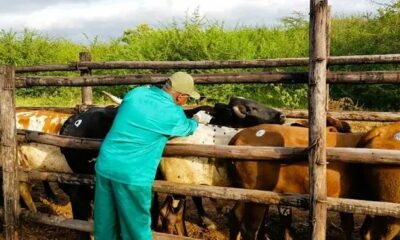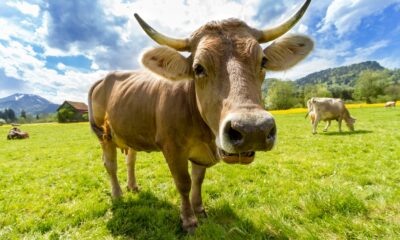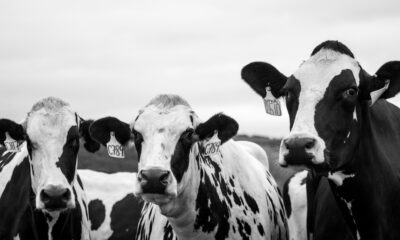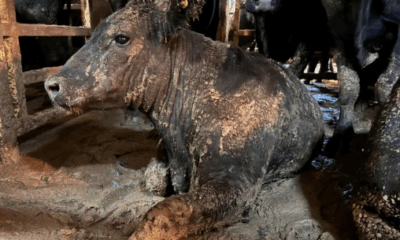Opinion
Fraud, Foot-and-Mouth and Famine: Why Corruption is Killing South Africa’s Food Supply
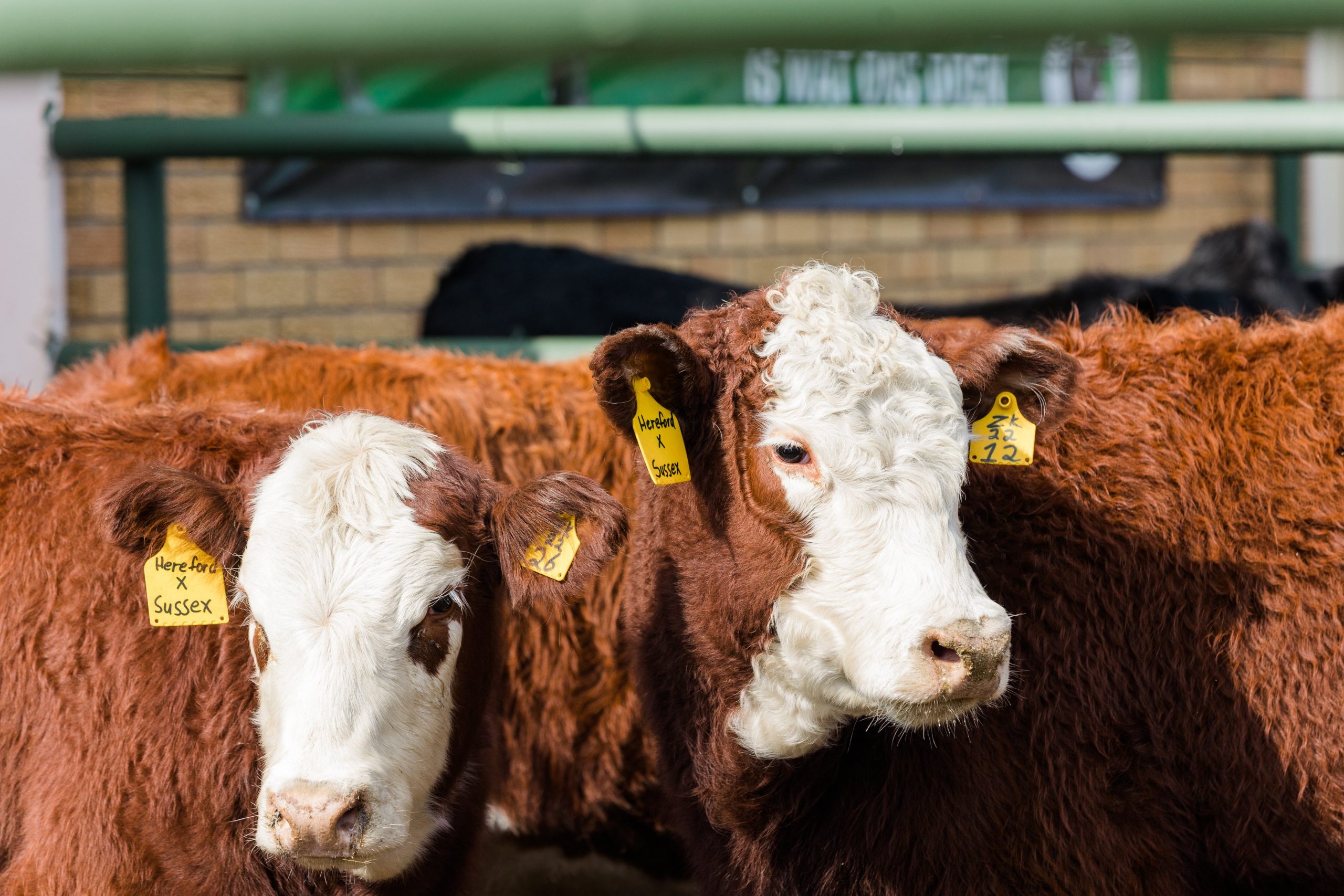
South Africa’s food system is being devoured from the inside and not just by disease.
The chickens are literally coming home to roost.
And the cattle? They’re limping through a national crisis that’s quickly revealing how decades of mismanagement, corruption and political indifference are undermining the country’s food security and threatening every South African’s dinner table.
In the past month alone, South Africa has battled a highly contagious livestock disease, a government vaccine manufacturer under investigation for R500 million in missing funds, and a broiler farm scandal so severe it required SPCA intervention. These aren’t isolated blunders. They’re the clearest signs yet that our agricultural sector is cracking—and the cracks lead directly to our plates.
The OBP Scandal: A Nation’s Herd Left Defenceless
Let’s start with Onderstepoort Biological Products (OBP), the state-owned company responsible for producing animal vaccines in South Africa. OBP should be a cornerstone of the country’s livestock health. Instead, it’s become a case study in chaos.
Minister of Agriculture John Steenhuisen revealed in August 2024 that R500 million allocated for upgrading OBP’s facilities had largely “gone missing.” A forensic audit uncovered unaccounted funds, sloppy financial practices, and a disturbing pattern of ignored audit standards.
The situation gets worse. In 2022, OBP’s vaccine shortages crippled the country’s response to a foot-and-mouth disease (FMD) outbreak, threatening entire cattle herds. The then-CEO, Dr. Baptiste Dungu, was later dismissed after being accused of instigating irregular procurement, mismanagement, and failing minimum security vetting standards.
Still, OBP limps along, now claiming “equipment breakdowns” are behind their vaccine supply woes. Ten years of breakdowns, to be exact. Meanwhile, livestock farmers have been left on their own.
Foot-and-Mouth Is Back and This Time It’s at Karan Beef
As if the OBP scandal weren’t alarming enough, FMD has re-emerged, infecting farms across the country. The most recent wave hit Karan Beef, South Africa’s largest cattle feedlot, home to over 150,000 animals in Heidelberg.
Though only 2% of cattle have been infected so far, experts warn the disease spreads like wildfire—and without vaccines, farmers have no defense. In provinces like KwaZulu-Natal, Limpopo and Mpumalanga, where outbreaks have historically hit hardest, farmers are bracing for economic disaster.
South Africa has roughly 12.3 million cattle. But when it comes to vaccines, we’re begging Botswana—a nation with just 2.3 million cattle—for help. It’s a national embarrassment for a country that produces over 1 million metric tonnes of beef annually, far outpacing Ethiopia’s 70 million-strong herd.
The Daybreak Chicken Farm Scandal: When Corruption Meets Cruelty
If the cattle crisis wasn’t enough, the Public Investment Corporation (PIC) has landed itself in hot water for its mishandling of Daybreak, a broiler farm meant to empower Black farmers.
Instead of opportunity, Daybreak delivered disaster: 350,000 chickens culled after being underfed and mistreated by an untrained workforce. The SPCA had to step in with a court order to stop the cruelty. But not a single arrest has been made. And the PIC? Quiet. Still managing pensioners’ money as if nothing happened.
Food Security is Not Just a Buzzword—It’s a Warning
The livestock sector isn’t just a niche industry. It contributes around 50% of South Africa’s agricultural GDP and plays a huge role in food exports. When OBP fails to deliver vaccines, or when government corruption sabotages farming projects, it’s not just farmers who suffer.
Every household in South Africa is at risk.
Infections like FMD not only threaten meat supplies but can also lead to price spikes, export bans, and job losses in rural economies. And zoonotic threats—the transmission of animal diseases to humans—are lurking in the background.
Local Voices: Frustration Boils Over
Livestock farmers are sounding the alarm. And so are everyday South Africans.
“It’s heartbreaking. We work hard, but the system keeps failing us,” said a beef farmer near Piet Retief, Mpumalanga.
“We’ll all pay more for food. Just watch,” posted @VuyoMthembu on X. “They’re not stealing millions—they’re stealing our food.”
Meanwhile, agricultural bodies like the National Animal Health Forum (NAHF) have repeatedly urged the government to address vaccine production issues. But even when former minister Thoko Didiza was briefed, no urgent reform followed.
What Needs to Happen Now
Minister Steenhuisen’s intervention might be late, but it’s welcome. What’s needed now is:
-
Immediate resolution of vaccine production failures at OBP
-
Criminal accountability for missing funds and unethical farming practices
-
Reinvestment in veterinary infrastructure to safeguard national herd immunity
-
Independent oversight of public agricultural projects like Daybreak
Because make no mistake: this isn’t just another state capture scandal. It’s a slow-burning agricultural disaster with real consequences.
It’s Not Just Their Livelihood It’s Our Future
South Africa has been resilient in the face of droughts, load shedding and pandemic shocks. But the creeping collapse of our food security systems is different.
It’s not an abstract crisis. It’s what we eat, what we export, what we feed our families. If corruption, mismanagement, and inaction continue to fester in agriculture, then soon, it won’t just be someone else’s farm going under—it will be the nation’s breadbasket that goes empty.
The question is: Who will answer for that?
{Source: IOL}
Follow Joburg ETC on Facebook, Twitter , TikTok and Instagram
For more News in Johannesburg, visit joburgetc.com

